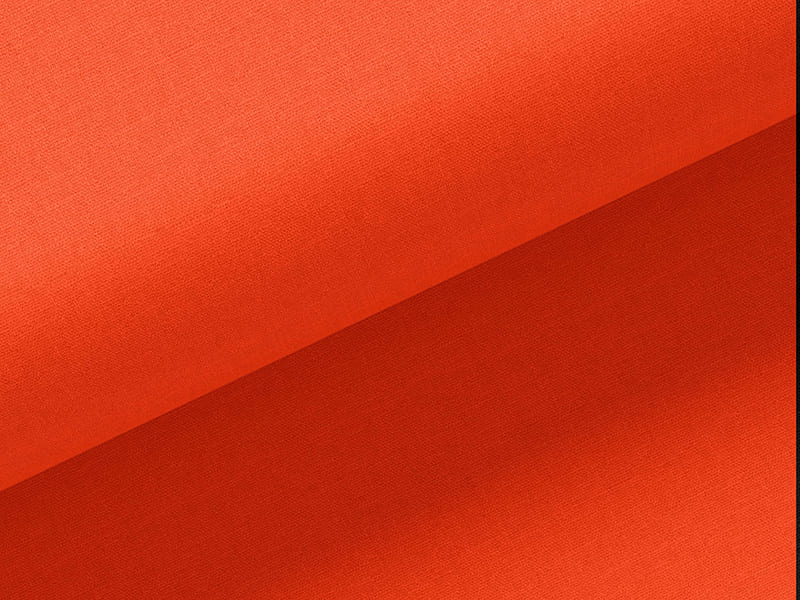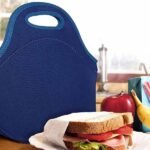Neoprene fabric is a unique and highly versatile synthetic material that has gained popularity across various industries, from fashion to technology. It is known for its durability, flexibility, and resistance to water, making it ideal for a range of products. But what exactly is neoprene fabric, and why is it so widely used? In this article, we’ll explore its composition, benefits, drawbacks, and applications to give you a comprehensive understanding of this remarkable fabric.
Neoprene fabric is a type of synthetic rubber that is prized for its resilience, flexibility, and water-resistant properties. It is used in a variety of industries for products like wetsuits, laptop sleeves, and custom promotional items.
Transition paragraph: To fully understand neoprene, it’s essential to explore its composition and why it possesses such unique properties.
What is Neoprene Fabric Made Of?
Neoprene fabric is a synthetic material made from chloroprene, a type of rubber polymer. It is produced through a polymerization process, where the monomer chloroprene is chemically reacted to form long chains of rubber molecules. The process allows the material to possess a number of advantageous characteristics, including elasticity, waterproofing, and resistance to abrasion and chemicals.
Neoprene is made from chloroprene, a type of synthetic rubber, which gives it its unique properties like elasticity, water resistance, and durability.
Neoprene is often manufactured in foam or solid forms, depending on its intended use. When made into foam, it is often used for wetsuits, laptop cases, and cushioning materials, while solid neoprene is used for gaskets, seals, and industrial applications.
What Are the Key Benefits of Neoprene Fabric?
Neoprene fabric offers numerous advantages that make it an excellent choice for a wide range of products. Some of the key benefits include:
- Durability: Neoprene is highly resistant to wear and tear, making it ideal for items that need to endure frequent use.
- Water Resistance: One of the standout features of neoprene is its ability to repel water. This makes it a popular choice for products exposed to moisture, such as wetsuits and water sports gear.
- Flexibility and Comfort: Neoprene is inherently flexible, allowing it to stretch and move with the body. This is why it is commonly used for activewear, medical supports, and accessories that need a snug fit.
- Thermal Insulation: Neoprene traps a layer of water between the fabric and the skin, which provides thermal insulation. This is why it is used in wetsuits for scuba diving, surfing, and other water sports.
Neoprene is durable, water-resistant, flexible, and provides excellent thermal insulation, making it ideal for everything from wetsuits to custom bags.
The combination of these properties ensures that neoprene is not only functional but also versatile in various applications, ranging from protective covers to custom promotional items.
What Are the Disadvantages of Neoprene Fabric?
While neoprene fabric has many advantages, it is not without its drawbacks. Some of the key disadvantages include:
- Environmental Impact: Neoprene is not biodegradable, meaning it can contribute to long-term environmental pollution. Additionally, the production process of neoprene can involve harmful chemicals.
- Heavy: Neoprene can be relatively heavy, especially in thicker forms. This might not be ideal for applications that require lightweight materials.
- Cost: Neoprene tends to be more expensive than other fabrics, which can increase the cost of products made from it. This can be a factor to consider for manufacturers or businesses seeking budget-friendly options.
Despite its many benefits, neoprene’s environmental impact, weight, and higher cost can be considered drawbacks, especially for large-scale production.
In order to mitigate some of these issues, there are ongoing efforts to develop more eco-friendly versions of neoprene and alternatives that maintain its benefits without compromising the environment.
What is So Special About Neoprene?
What sets neoprene apart from other fabrics is its unique combination of flexibility, durability, and water resistance. Unlike other fabrics that may deteriorate when exposed to moisture, neoprene retains its integrity and continues to perform in harsh conditions. This makes it particularly suited for extreme environments like underwater or in industrial settings.
Neoprene’s ability to combine flexibility, durability, and water resistance makes it a special material for products that need to perform in tough conditions.
Another reason why neoprene is so special is its adaptability. It can be custom-molded to fit a wide range of product designs, making it a popular choice for businesses looking to create unique and branded products.
Which Products are Made from Neoprene Fabric?
Neoprene is used in a variety of products across different industries. Some of the most common products made from neoprene fabric include:
- Wetsuits: Neoprene is famous for its use in wetsuits due to its water resistance and insulation properties.
- Laptop Sleeves and Bags: Neoprene’s flexibility and protection make it an excellent choice for laptop cases and protective covers.
- Sports Gear: From knee pads to wrist supports, neoprene’s stretchability and comfort make it ideal for medical and athletic gear.
- Fashion Accessories: Many fashion brands have begun using neoprene to create stylish yet durable bags, jackets, and even footwear.
- Custom Promotional Products: Neoprene’s customization potential makes it a popular material for promotional products, including branded sleeves, bags, and cases.
Neoprene is used in a wide array of products, including wetsuits, laptop sleeves, sports gear, fashion accessories, and custom promotional items.
Neoprene’s adaptability to various designs, along with its physical properties, makes it a go-to material for a broad range of applications. Businesses looking to create branded or custom products often turn to neoprene to achieve both functional and aesthetic value.
Conclusion
Neoprene fabric is a high-performance material that has found its place in a variety of industries due to its unique combination of durability, flexibility, and resistance to water and extreme temperatures. While it does have some environmental and cost-related drawbacks, the benefits it offers make it an excellent choice for custom products. If you are looking to create a high-quality, durable product, neoprene could be the perfect material to meet your needs.
Whether you’re a brand owner, wholesaler, or retailer looking to customize neoprene items, our team can help you design and produce top-quality products tailored to your specifications. Contact us today to learn more about how we can collaborate to bring your custom neoprene products to life.











